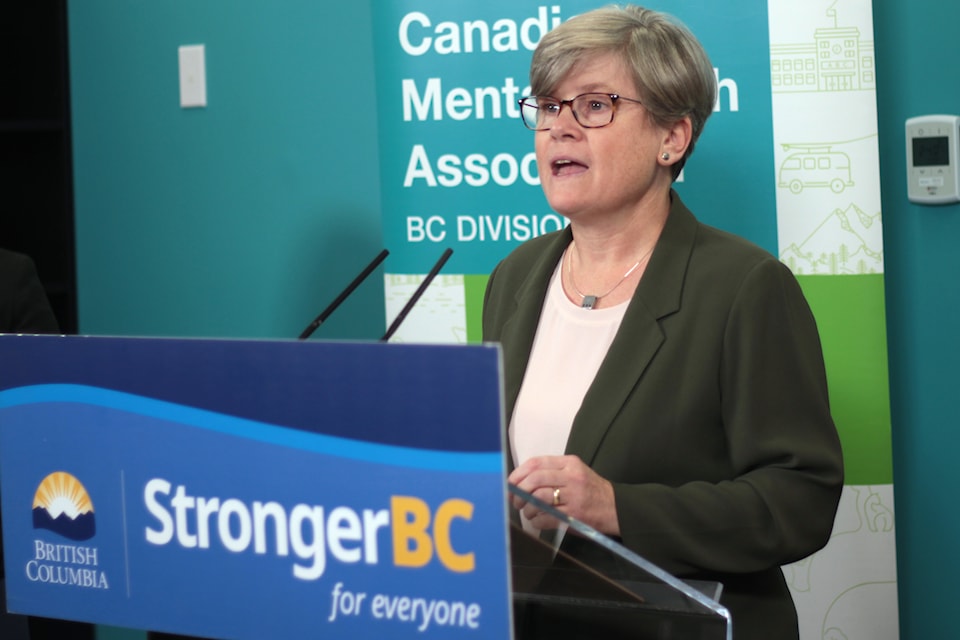Capital Chatter: A Democrat’s town hall
Published 8:00 am Thursday, January 23, 2020

- Capital Chatter: The real reason that HB 2020 failed
One of the Oregon Senate Democrats’ negotiators on climate change legislation made her position clear to constituents at a town hall meeting this week.
Sen. Kathleen Taylor, D-Milwaukie, was asked about the potential for Republicans senators to again walk out and thus block Senate action on a carbon cap and trade bill.
“I’m not interested in putting forth a watered-down bill on climate just to appease and have them come. Why would I do that?” she said to scattered applause.
Taylor said Democrats already had agreed to a number of changes sought by timber, rural and other interests.
About 50 people attended the meeting Wednesday evening in the SMILE Station, a former firehouse in Southeast Portland. The audience skewed older, which seems to be the case with town halls, but younger adults also attended.
Taylor had invited Sen. Mark Hass, D-Beaverton, to talk about the Student Success Act and its corporate activity tax passed by the Legislature last year. There also were questions about the climate legislation, gun control, state agency scandals and other issues.
The audience was so engaged that the town hall lasted 90 minutes, a half-hour longer than scheduled, and didn’t break up until Taylor reminded people that homemade cookies were available.
“I believe climate change is the issue of our time,” Taylor said.
Passing the climate bill is her top priority for this year’s Legislature. The so-called “short” session starts Feb. 3 and ends by March 8.
The Senate Environment and Natural Resources Committee, led by Portland Democrat Michael Dembrow, unveiled the new climate bill this month during Legislative Days. It is a reworked version of House Bill 2020, which was scuttled at the end of last year’s legislative session when Republicans temporarily boycotted the Capitol.
“I don’t thinking anybody saw coming what happened,” Taylor said.
House Speaker Tina Kotek, D-Portland, told reporters last week that the House also has a climate bill ready but is waiting to see what the Senate does.
Taylor said the Senate legislation, SB 1530, already is undergoing proposed changes as negotiations continue with key interest groups. She said that Senate President Peter Courtney, D-Salem, had appointed Dembrow, Lee Beyer of Springfield, Arnie Roblan of Coos Bay and her as negotiators.
Republican senators have said the new version is as bad as last year’s HB 2020, perhaps worse; their ideas have been rejected; and they see no value in being in the negotiating room but not part of the negotiations.
One participant at the town hall said she’d received an email urging supporters of the climate bill to contact legislators, who were being flooded with opposition messages from Timber Unity.
A man asked whether roadblocks could be set up on Interstate 84 to arrest Republican legislators fleeing to Idaho to prevent the Legislature’s having a quorum to conduct business. Taylor said it was unclear whether absent legislators can be arrested in Oregon and forced to come to the Capitol.
Right now, she said, her feeling is that the Republican senators will be at the Legislature. “If they don’t come, then we will let the democratic process happen,” she said. “We have a couple of Republican members who are in vulnerable seats (in this year’s elections), and we will campaign against them.”
Taylor said the biggest and best minds in climatology are advising on the bill. Those experts have said that leaving rural transportation fuels out of this bill, although they were included in HB 2020, would not prevent Oregon from joining California and other jurisdictions in a carbon market.
Asked why not send the bill to voters (as Republicans have sought), Taylor said businesses and other critics have an endless amount of money to campaign against it.
“We need the bill to pass,” she said, adding that the nation was watching Oregon.
Hass indicated that Oregon should learn from the experience in Washington state, where voters rejected carbon proposals. “The Eagle Scout in me says let’s just vote and Oregonians can have the final say,” he said, but that is not plausible.
Another participant said opponents won the messaging campaign last year by spreading the narrative that ” Kate Brown is coming for your guns and your trucks.”
On other issues:
• Hass said he is a co-sponsor of Senate Majority Leader Ginny Burdick’s bill allowing governments to ban all firearms, including those carried by people with concealed weapons permits, from government facilities. That prohibition could include schools and the State Capitol. Hass and Taylor said they would vote for that bill as well as a House bill requiring safe storage of firearms.
• While applauding the grants available to school districts through the Student Success Act, a woman said the application process was so complex that her district had received an 85-page manual.
• Hass credited goodwill in working with the business community for the fact that opponents did not refer the new corporate activity tax to voters. Had there been a statewide election on the tax, he noted, it would have taken place last week.
• With the new tax and the Legislature’s other investments in education, Hass said, Oregon has nearly closed the longtime gap between actual school spending and the amounts suggested by the state’s Quality Education Model.
• Both senators said they would vote for a House bill that outlaws coyote-hunting contests.
• Hass and Taylor agreed that some state agencies need better oversight.
• No one raised the issue of homelessness, a common topic of conversation at town halls.
Dick Hughes, who writes the weekly Capital Chatter column, has been covering the Oregon political scene since 1976. Contact him at TheHughesisms@Gmail.com , Facebook.com/Hughesisms, YouTube.com/DickHughes or Twitter.com/DickHughes.





